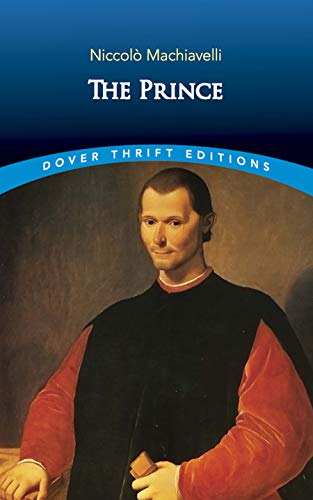
The Prince by Niccolo Machiavelli
Machiavelli’s highly influential treatise on political power
The Prince shocked Europe on publication with its advocacy of ruthless tactics for gaining absolute power and its abandonment of conventional morality. Niccoló Machiavelli drew on his own experience of office under the turbulent Florentine republic, rejecting traditional values of political theory and recognizing the complicated, transient nature of political life. Concerned not with lofty ideal but with a regime that would last, The Prince has become the bible of realpolitik, and it still retains its power to alarm and to instruct. In this edition, Machiavelli’s tough-minded and pragmatic Italian is preserved in George Bull’s clear, unambiguous translation.





